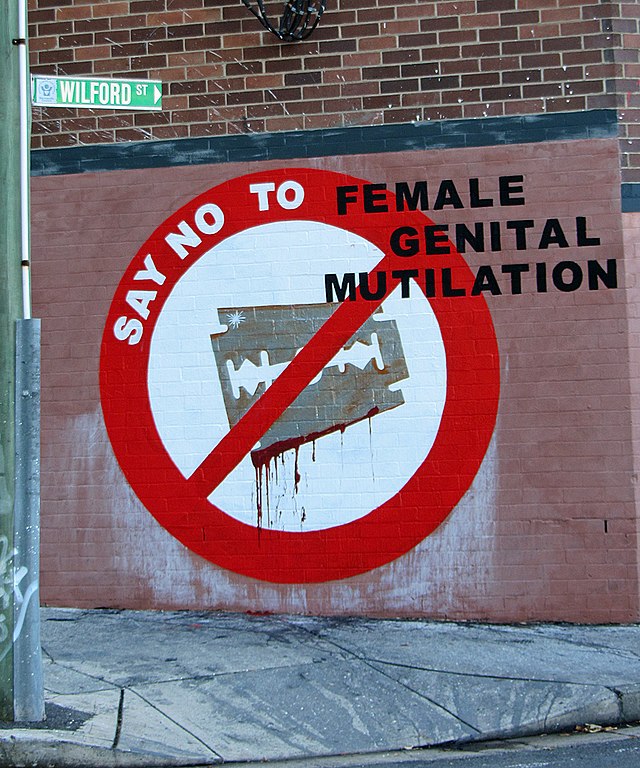This essay is part of Migrant Women Press’s 16 days of activism against gender-based violence.
In light of the International Day for the Elimination of Violence Against Women, Aicha Ndong has crafted an essay delving into a vital subject that, in her perspective, remains inadequately acknowledged.
Female Genital Mutilation (FGM), or Female Genital Cutting (FGC), is the practice of deliberately cutting or changing a girl’s genitals for no medical reason. It is also known as female circumcision.
This unethical practice is usually performed on girls between infancy and the age of 15. There are a few cases where it is performed during adolescence or before a young woman gets married.
FGM is often done by “traditional circumcisers”, who are non-medical professionals. Anaesthetics or antiseptics are rarely utilised, and equipment like knives, scissors, scalpels and even pieces of glass or razor blades are used. Depending on the type of FGM, genitalia are not cut but instead stitched together.

This practice is more prevalent in Africa, the Middle East, and Asia and is often considered necessary in these communities. It is usually using various excuses and reasons to control these vulnerable girls’ bodies and sexualities whilst enforcing a toxic mindset that enables control over women’s bodies. Some believe that this practice is based on religion, but no religious scriptures state this.
If FGM were medicalised, it would be a clear violation of women’s rights and medical ethics. Even if it was done by medical personnel, FGM is never safe. It removes and damages healthy tissues and affects many functions of the female body. The UN and many medical associations have criticised this practice, and in 2012, the UN banned the practice of FGM worldwide.
FGM not only causes severe pain and bleeding, but it can also affect a girl’s urination and fertility; sex can be very painful, and they suffer through lots of difficulties regarding pregnancy and childbirth. There are also cases where death occurs. Regarding mental health, lots of women and girls go through anxiety, depression, psychological distress, and trauma.

Some surgeries can help treat FGM; unfortunately, they are not reversal surgeries. They do not replace any removed tissues and will definitely not undo any physical or mental damage caused, but they can help with many other problems.
Fortunately, work and advocacy have been done and continue to be done about this horrible abuse.
For example, the World Health Assembly, the decision-making body of WHO (World Health Organisation), has been working with partner organisations to prevent FGM medicalisation.
In many African countries, many programs have been implemented to bring awareness and showcase the harmful practices of FGM.
Here are some ways you can advocate for ending FGM:
● Educate yourself and others about the harmful consequences of FGM.
● Advocate for legislation and policies that criminalise FGM and provide support for survivors.
● Support and connect with survivor networks and organisations that directly work with individuals affected by FGM.
Promoting change requires patience, cultural sensitivity and teamwork. By raising awareness, educating communities and working together, we can help contribute to ending FGM.
*Medicalisation of FGM is FGM performed by any category of health care provider in a public or private clinic, at home or elsewhere. (UNICEF)
Aicha Ndong is a 20-year-old Senegalese woman born and raised in Kuwait. She is currently pursuing her undergraduate degree and hopes to have a career in sustainability. She is interested in the environment, writing, and social issues, specifically topics about women and women’s rights, migrant workers and their challenges, mental health, disability, and youth.



